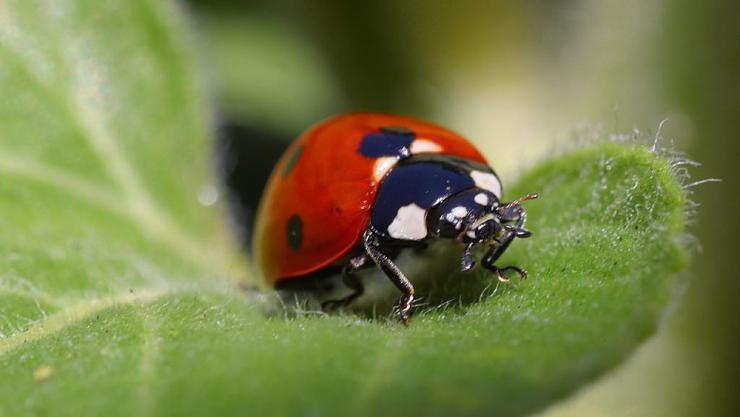Brook Byers Professor Weissburg Wins $3M Grant to Bring Biologically Inspired Design to High Schools
Aug 09, 2019 — Atlanta, GA

Engineers and scientists study nature to find new ideas for designs and processes. For example, how a ladybug folds its wings can inspire new designs for compact satellites. With a new grant, Georgia Tech researchers will help high school teachers bring those kinds of engineering concepts into their classrooms.
The way a ladybug folds its wings can help aerospace engineers design more compact satellites. Studying how ants dig tunnels could help us create our own tunnels more efficiently.
The idea of using nature’s examples to develop products and designs that benefit society is the cornerstone of a new project at Georgia Tech that aims to get more high school students interested in engineering.
Funded by the National Science Foundation (NSF), the $3 million effort will put high school engineering teachers in research labs at Georgia Tech for five weeks. The teachers will be embedded with engineers and scientists, working at the forefront of what’s called biologically inspired design, and creating a curriculum for the teachers to use in their classrooms.
“Lots of people think animals and what they do is insanely cool — and the internet agrees — which means we can engage interest in engineering by making a link to biology as a way to solve engineering challenges,” said Marc Weissburg, project leader and professor in the School of Biological Sciences. “The act of trying to see how an animal might help find a solution to a problem is a very creative process. It challenges the notion that engineering is boring. High school engineering experiences vary widely, but they generally do not include the most cutting-edge topics, like bio-inspired design, which gets people really excited,” he said.
For the next four years, Weissburg will collaborate with researchers Meltem Alemdar, Michael Helms, Roxanne Moore and Michael Ryan at Georgia Tech’s Center for Education Integrating Science, Mathematics and Computing. They’ll create and assess units for 10th, 11th and 12th graders that explore bio-inspired design in the context of problems that are relatable to teenagers.
In particular, the researchers see their approach as a way to reach girls, who may not have considered engineering as a potential career. Weissburg pointed to data from the Center for Digital Education that showed 24% of male high school students expressed interest in engineering. For young women, the number was just 11%.
“Too often, engineering is depicted as applied math and science, which completely neglects how human-centered engineering is,” said Weissburg, who also co-directs the Center for Biologically Inspired Design at Georgia Tech and is a Brook Byers Professor.
The project will generate a curriculum with design and build exercises, background materials for teachers, examples to spark discussion, tests, and other resources that can be used by teachers across the country. Researchers will examine how well the curriculum engages students, particularly those from groups underrepresented in engineering.
“States have different standards, and teacher goals and classes have to be responsive to their unique student audience,” Weissburg said. “Our series of resources, all of which will be online, will allow teachers to easily slot in material that fits for them. It will allow them to talk to us and each other about best practices.”
The research team has partnered with Gwinnett County Public Schools to identify the first group of teachers they’ll invite to participate. Weissburg said that will happen in late Spring 2020.
“Bio-inspired engineering is a unique way of thinking, and so we have to help the teachers understand how to encourage this in their students.”
404.894.6016




